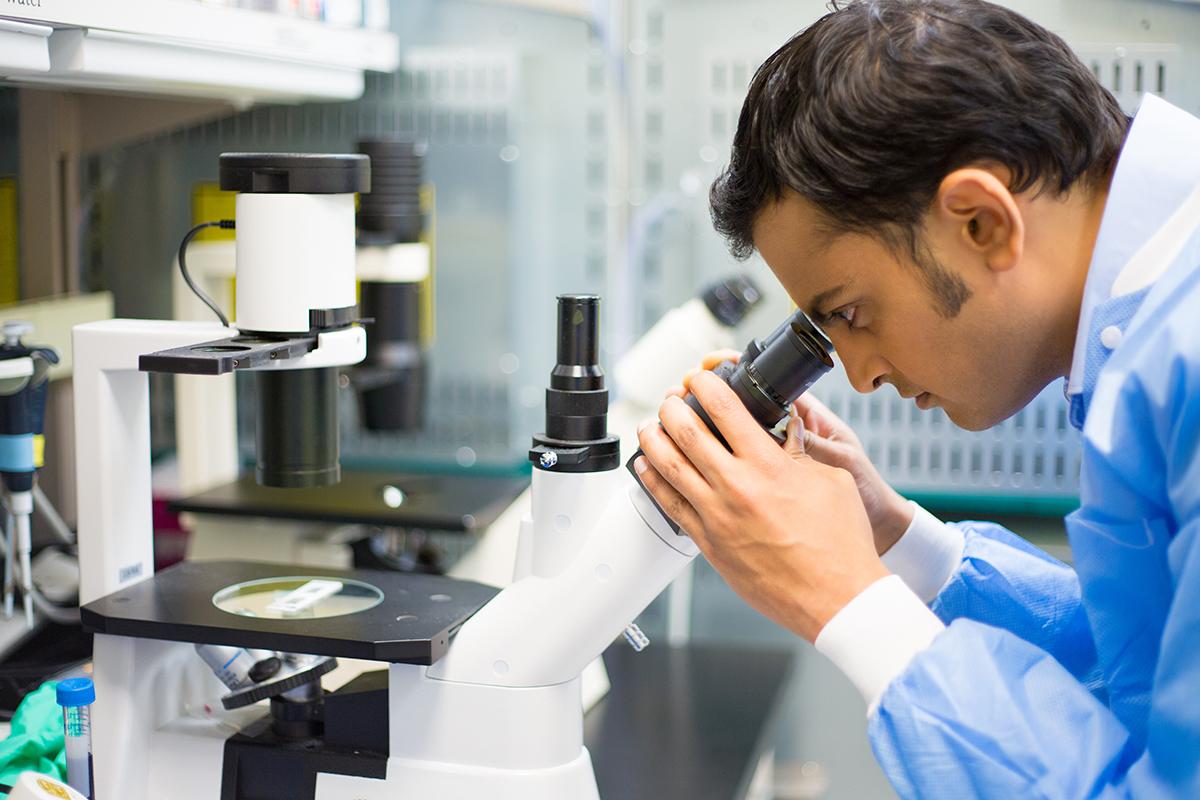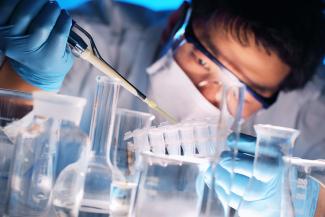The Medical Laboratory Science field is growing rapidly. Most of our students have multiple job offers even before they graduate, resulting in good job qualifications and outlook. This is because the program instills excellent core competencies plus on-the-job experience in clinical labs.
Job Qualifications and Outlook
Medical laboratory scientists are currently in demand across the nation. Graduates of the Medical Laboratory Science (MLS) program at The University of Tennessee Medical Center will find career opportunities in:
- Medical centers
- Independent laboratories
- Hospitals
- Reference laboratories
- Blood centers
- Research laboratories
- State and national government laboratories
- University programs
Faster-than-average job growth is expected as current medical laboratory scientists retire and as the population ages, increasing the need for skilled laboratory scientists.
The program has an exceptional job placement rate. Since 2007, the UT Medical Center Medical Laboratory Science Program boasts a 100% job placement rate as reported to the accreditation body, NAACLS.
Core Competencies
The educational experiences during the MLS program are designed to ensure all students are educated and competent to enter the profession of Medical Laboratory Science while demonstrating high ethical and moral standards.
At the completion of the program, students will be able to:
- Perform and evaluate pre-analytical, analytical, and post-analytical procedures to ensure the quality of laboratory results.
- Perform laboratory tests, analyze and verify results, and resolve common problems in all the major areas of the clinical laboratory.
- Explain the principles and methods used in laboratory tests in all major areas of the clinical laboratory.
- Explain the clinical significance of laboratory procedures in diagnosis and treatment of disease and maintenance of health.
- Correlate information from different laboratory departments to verify results and/or resolve problems.
- Evaluate patient results and suggest or select appropriate additional testing.
- Determine the priority of laboratory requests and arrange the workload for optimal patient care and efficiency.
- Obtain acceptable blood samples for laboratory tests using standard phlebotomy procedures.
- Use quality assurance principles and practices to ensure the accuracy and reliability of laboratory information.
- Perform preventive maintenance of equipment and instruments.
- Use the principles of method evaluation to select new techniques and instruments.
- Explain and apply the major principles and practices of laboratory administration, supervision, and budgeting.
- Comply with all standard safety regulations and monitor changes in safety regulations.
- Use educational methods to present information and develop instructional materials.
- Use computer systems to produce documents, research information, communicate with others, and enter and retrieve laboratory information.
- Communicate effectively and respectfully with laboratory personnel, other health care professionals, patients, and the public.
- Demonstrate professional conduct and interpersonal skills with patients, laboratory personnel, other health care professionals, and the public.
- Demonstrate ethical standards in all matters related to medical information and patient care.
Clinical Laboratory Experience During the Program
Students experience individualized instruction in the clinical laboratory at UT Medical Center. The state-of-the art laboratory, managed by Laboratory Corporation of America (LabCorp), is the largest clinical laboratory in the East Tennessee region. With an extensive test menu, the laboratory reports an average of two million billable laboratory tests every year to help diagnose and treat patients in a seventeen-county region in East Tennessee. Students work one-on-one with experienced instructors in the clinical laboratory to gain valuable knowledge and experience performing a wide variety of tests.
Job Placement
Because students work in professional labs during the program, they have on-the-job training before they graduate. Many of our students are offered jobs at these labs, though because the MLS program is highly respected in the industry, students also regularly receive job offers from around the country.
The program helps students prepare the documents needed to apply for jobs, and works with professional organizations to help students market themselves in this growing field.

